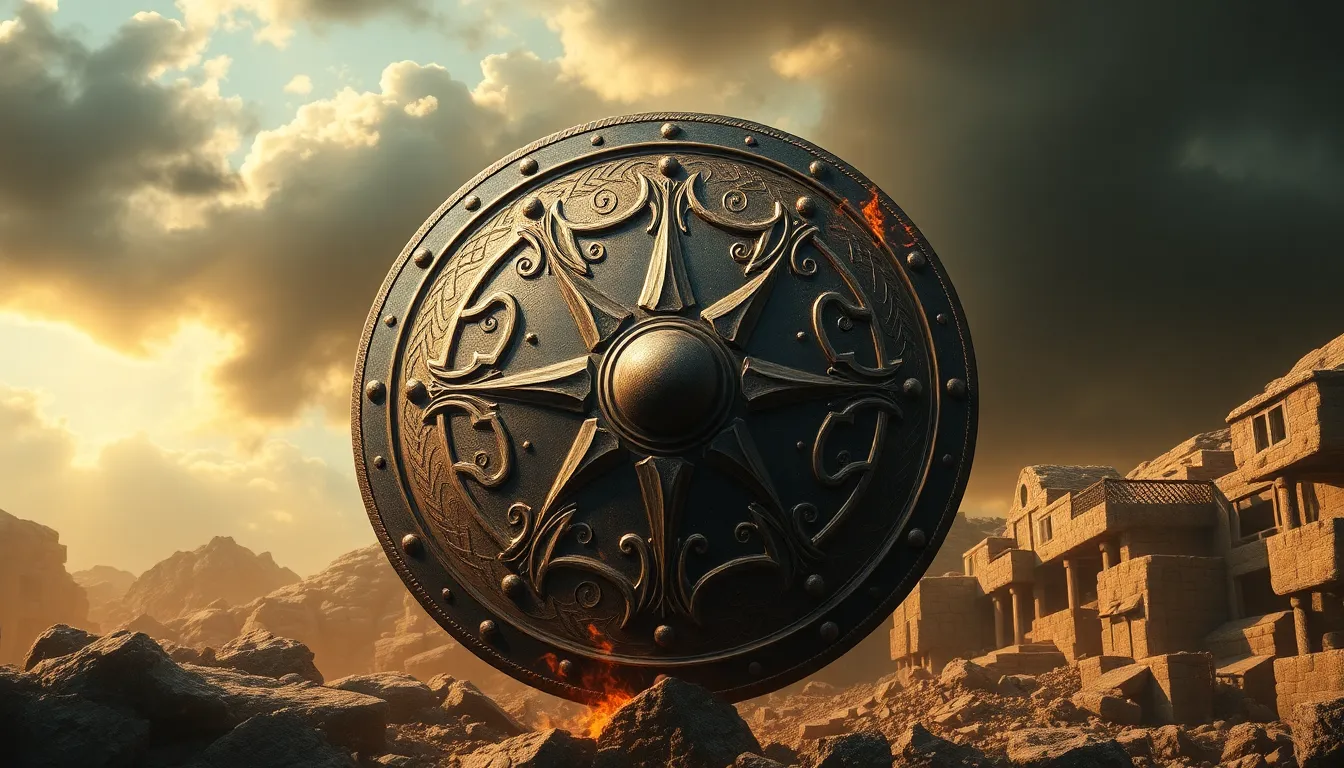The Shield of Hercules: A Hero’s Legendary Defense
1. Introduction to Hercules: The Mythical Hero
Hercules, known as Heracles in Greek mythology, is one of the most celebrated heroes of ancient lore. Renowned for his incredible strength and heroic feats, Hercules embodies the archetype of the hero who overcomes tremendous challenges. His significance in mythology extends beyond mere physical prowess; he represents the human struggle against adversity and the pursuit of redemption. Hercules’ legendary feats, including the Twelve Labors, have become foundational stories that illustrate themes of courage, perseverance, and the quest for glory.
2. The Origins of the Shield of Hercules
The Shield of Hercules is steeped in ancient mythological history, often regarded as a symbol of divine protection. While the shield itself is not the primary focus of many myths, it is frequently mentioned in connection with other heroic artifacts. In Greek mythology, weapons and armor often hold significant power, and the Shield of Hercules is no exception. It is linked to legendary weapons like Perseus’ shield and Athena’s Aegis, emphasizing the importance of protective gear in the battles faced by heroes.
3. Description and Symbolism of the Shield
The Shield of Hercules is described as a magnificent round shield, often embellished with intricate designs that symbolize valor and protection. Its surface is said to be made of bronze, glimmering with the reflections of the sun, instilling fear in the hearts of adversaries. Key features of the shield include:
- Material: Crafted from bronze, signifying strength and resilience.
- Design: Adorned with images of mythical creatures, such as lions or serpents, representing Hercules’ triumph over his foes.
- Size: Large enough to provide full-body protection, symbolizing the comprehensive defense it offers to its bearer.
Symbolically, the shield represents not only physical protection but also the inner strength and courage required to face life’s challenges. Its imagery often reflects the duality of heroism: the fight against external threats and the internal battles we face.
4. The Shield in the Twelve Labors of Hercules
Throughout his Twelve Labors, the Shield of Hercules plays a crucial role in aiding him during various formidable challenges. For instance:
- Slaying the Nemean Lion: The shield helped deflect the lion’s powerful claws, allowing Hercules to strategize and ultimately strangle the beast.
- Defeating the Hydra: When battling the multi-headed serpent, the shield provided a barrier against its venomous attacks, enabling Hercules to focus on cutting off its heads.
- Capturing the Erymanthian Boar: The shield served as a tool to shield himself from the boar’s ferocity, allowing him to trap it with cleverness and skill.
In these labors, the shield not only protects Hercules but also symbolizes the resourcefulness and courage required to overcome obstacles.
5. The Shield’s Legendary Powers and Abilities
Many myths attribute magical properties to the Shield of Hercules. Some of these legendary powers include:
- Invulnerability: The shield is said to render its bearer impervious to physical harm.
- Reflective Power: It can reflect attacks, turning an enemy’s strength against them.
- Inspiration: The mere presence of the shield instills courage in allies and fear in foes.
When compared to other legendary shields in mythology, such as Athena’s Aegis, the Shield of Hercules stands out for its focus on brute strength and the warrior spirit, rather than divine manipulation.
6. The Shield of Hercules in Art and Literature
The Shield of Hercules has inspired countless representations in ancient art and literature. From vase paintings depicting scenes of Hercules in battle to epic poems narrating his adventures, the shield is often a focal point of these works. Notable mentions include:
- Homer’s “Iliad”: While not directly mentioning Hercules’ shield, it references the significance of shields in heroic combat.
- Classical Sculptures: Artwork from ancient Greece often features Hercules with his shield, emphasizing its importance in his identity as a hero.
These representations have influenced modern adaptations in literature and art, showcasing the shield’s enduring legacy as a symbol of heroism.
7. The Shield’s Role in Modern Culture
In contemporary media, the Shield of Hercules continues to resonate, appearing in films, books, and video games. Some notable examples include:
- Disney’s “Hercules”: A light-hearted interpretation that introduces the character of Hercules to a new generation, featuring the shield as a key element.
- Video Games: Numerous games, such as “God of War,” incorporate references to Hercules and his legendary shield.
These modern interpretations often diverge from the original myths, reflecting contemporary values and storytelling techniques while keeping the essence of Hercules’ heroism alive.
8. The Legacy of Hercules and His Shield
The impact of Hercules on subsequent hero myths is profound. His journey and the shield symbolize not just physical strength but also the moral and ethical dilemmas faced by heroes. The shield represents a metaphor for protection and strength in human stories, influencing later narratives about heroes across cultures.
9. Lessons from the Shield of Hercules
The stories surrounding the Shield of Hercules offer various insights and moral lessons, such as:
- The Importance of Courage: Heroes face not only physical challenges but also moral ones, showcasing the need for bravery in all aspects of life.
- Resourcefulness in Adversity: The shield symbolizes the idea that one must use their strengths wisely to overcome obstacles.
- Protection of Others: The shield embodies the duty of heroes to protect those who cannot defend themselves.
These lessons remain relevant in today’s world, emphasizing the enduring nature of heroism.
10. Conclusion: The Enduring Power of Myths
The Shield of Hercules stands as a powerful symbol within the broader context of Hercules’ legacy. It encapsulates the essence of heroism, demonstrating the timeless nature of strength and protection in mythology. As we reflect on these stories, we recognize the universal themes of bravery, sacrifice, and the enduring fight against adversity that resonate with us even in modern times.




